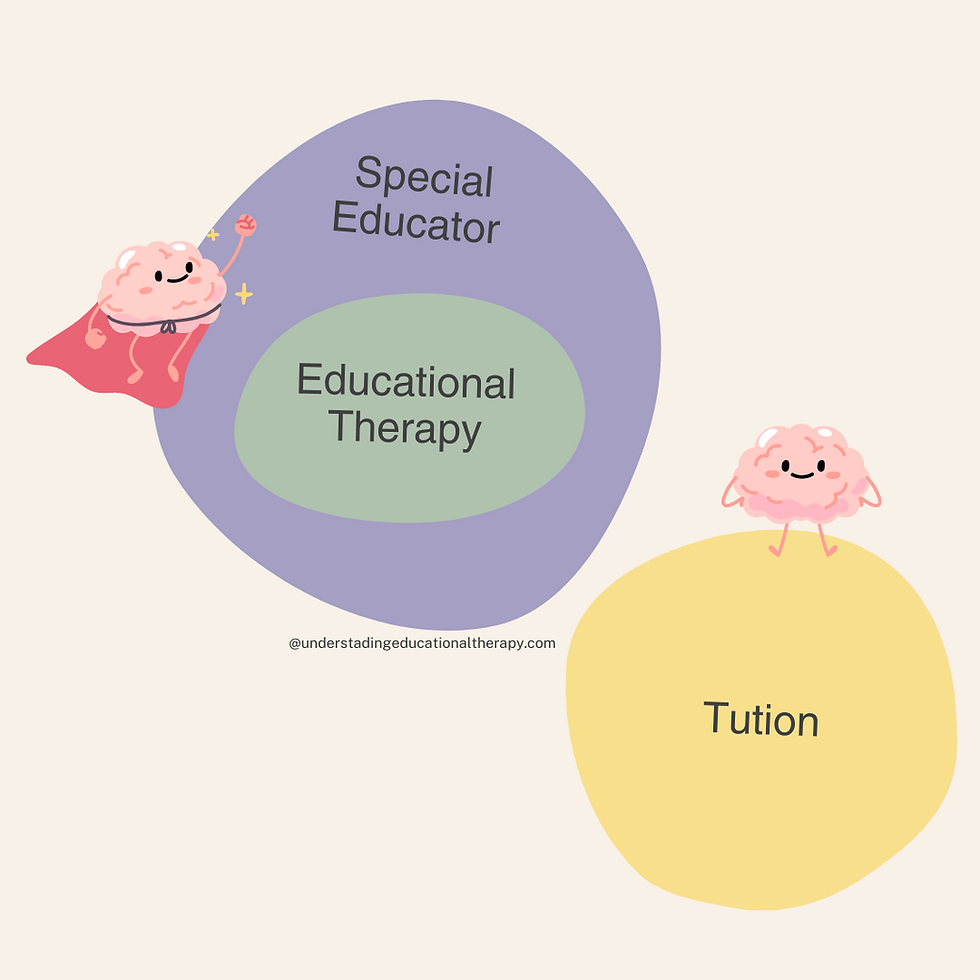Scratching the Surface: Unseen Struggles, Real Stories & Some Solutions
- Sukanksha Bajaj
- Jan 10
- 3 min read
Updated: May 28
School, studies—just the thought used to give me jitters, and many adults I talked to either loved or hated their experience. School constitutes 15 years of one’s life; it shapes our identity, perception, and confidence. I went to many schools, various boards, and faced numerous challenges. Despite not having a learning difficulty, I struggled due to a lack of belief in my abilities. What I realized was that not all my schools were bad; there was one where I felt I belonged and discovered that I wasn’t bad at all. Discovering psychology was a turning point, helping me understand that my capabilities weren’t the issue. This realization led me to think about children with hidden disabilities, who face even greater challenges.
Have you ever heard of the term 'hidden disability'?

Hidden disabilities refer to challenges that may not be immediately apparent to others. Learning difficulties are a prime example because their symptoms often become noticeable only in specific contexts, such as when a child starts school. In some cases, these difficulties may not be recognized until middle school, high school, university, or even later. Such disabilities can impact a child's or adult's daily life and interactions.
I have a story—something that will happen often. I interviewed an adolescent as a part of my thesis; she was pursuing chemistry at the University of Cambridge. She was asked to take a gap year because she was overwhelmed and was finding it difficult to cope. She was an ace student throughout her high school with straight A's. So what happened? She got diagnosed with a learning difficulty. She had used up all her resources and strategies to maintain her grades in school; she had post-its on the wall and studied for 12 hours a day to get those grades. You would say she is a hard worker, which is true, but is that normal? Should it have been so stressful? What if she got the necessary help earlier? That's what happens with a hidden disability. As long as the symptoms can be masked, we would never know the struggles the individual has faced.
So what's the problem?
Our perception and a lack of awareness. We always believe a child with a 'disability' should have an obvious symptom, like a physical or mental impairment, or at least a behavioral issue. Our governments have set up departments and made policies, but the execution is where we falter.

There is a lack of specialists, and teachers are not educated about learning difficulties. They learn the definition of the disability and probably some symptoms. Studying about disabilities was only an optional module till sometime back, so misconceptions are rampant. They don't realize that even a child with an IQ of 130 or someone at the top of their class could suffer from a learning disability.
But it's not all bad news. There are efforts to make the school, society, and teachers aware and sensitive. There is progress, as more children are being screened now than ever before, so all the children can get the help they need.
So what's the right kind of help?
Oh, there is no simple answer to this! There are lots of them, but let me stick to learning difficulties. It depends on the symptoms and severity of the difficulty. I will get into the

various ones in another post, but first, let me clear the name of my understanding of educational therapy. So what is educational therapy? Simply put, educational therapists are therapists who work with children with learning difficulties on skills and academics. So are we special educators? Yes, we are, but special educators work with children with physical impairments, like hearing or visual impairment, as well as intellectual difficulties. Educational therapy is more specifically for children with ADHD, ASD, dyslexia, dyscalculia, dysgraphia, etc. The main focus of tutions are academic concepts which could be used in ET as tools to build skills but they are not the main focus.
I know the word 'therapy' worries people. I once had a student tell me, "My parents told me I don't need therapy; there is nothing wrong with me! But I think they are old school." Therapy comes from a Greek word, therapeia, which means 'curing or healing.' Though I don't think my students have any illness that they need a cure for, they definitely need our support to help them heal from what they have endured and strategies to help them face challenges head-on in the future!



Comments